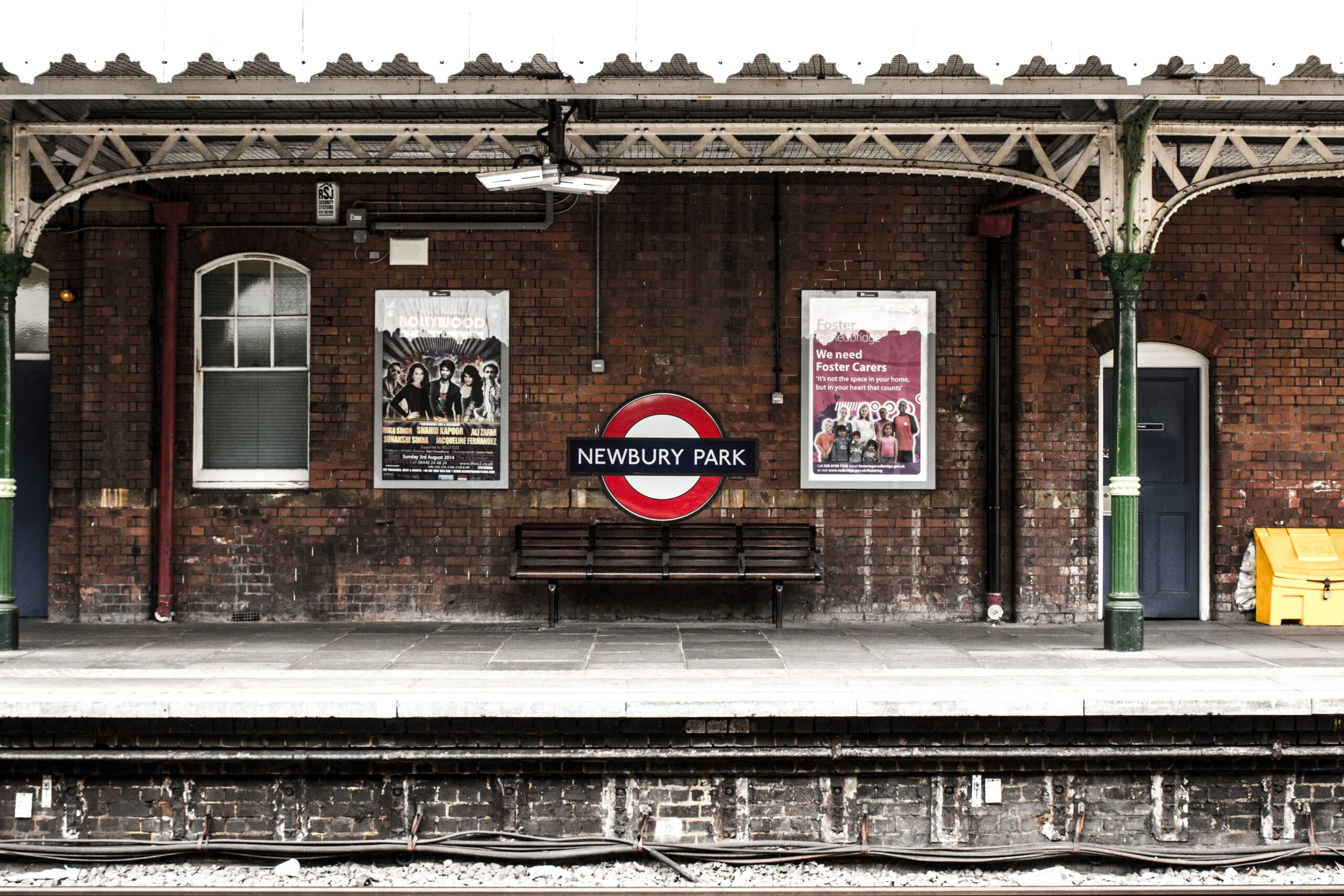Cross-government team wins Reimagine Challenge
A proposal to develop a mobile app to track food thrown away that its creators hope will spark a “food waste movement” has scooped this year’s Reimagine Challenge prize for innovative answers to policy challenges in Whitehall.
A cross-government group of officials from the Ministry of Justice, HM Revenue and Customs, the Office for National Statistics and the Cabinet Office, as well as KPMG experts, beat similar groups of competitors at the Reimagine Challenge finale, held at the Royal Institution, by impressing judges including civil service chief executive Sir John Manzoni, Department for International Development permanent secretary Matthew Rycroft and Department for International Trade perm sec Antonia Romeo.
The team was one of four who took on policy challenges set by permanent secretaries for this year’s competition. The victorious officials (pictured above) were tasked with finding a way to improve people’s access to healthy, affordable food while also improving the environment. They discovered seven million tonnes of food is wasted in the UK each year – including 2.5 million tonnes of fruit and vegetables – costing the average family with children around £70 a month.
Their project aims to tackle the problem by cutting waste at the household level, using a programme anchored around a mobile app setting out four stages to behavioural change: track; act; share; and reward.
Taking inspiration from step counters that many people have installed on their mobile phones, the app the team has designed would help users to get a better picture of the scale and impact of their monthly food waste and encourage them to change their behaviour.
As users record each item of food they throw away, the app keeps a running tally of the mass and value of the wasted food to help households to understand its financial and environmental impact.
But the winning bid noted that “awareness by itself rarely leads to long-lasting change”.
Users would, therefore, be encouraged to act by looking up tips on specific items of food in their fridge that are about to expire, leading to personalised suggestions in future.
“This is where WastePad differs from a plethora of carbon footprint calculators – in addition to tracking waste, it helps users to manage and ultimately reduce their food waste through offering practical tips, observations on the most wasted produce and linking external resources,” it said.
The proposal also set out plans to enable users to share their progress via social media platforms and compare themselves to others using the app. They could also collect points based on their progress that could be translated into prizes such as vouchers or achievement badges.
The other challenges sought ways to increase the public’s digital skills; increase the number, diversity and status of volunteers in law enforcement; and find opportunities to use the UK’s aid budget to trade and invest in developing markets.
Each team had six months to work with public and private-sector bodies to come up with creative and realistic ways to tackle their assigned challenge.
In the digital skills category, a team worked with digital inclusion charity The Good Things Foundation on a proposal to leverage the Social Value Act to bring together voluntary and social organisations, government and suppliers to support community-based programmes to improve the skills of people who are digitally isolated.
The entrants for the law enforcement challenge aimed to introduce a more flexible way for professionals to volunteer with the police and change perceptions within forces to ensure their skills are used effectively.
The trade and aid team meanwhile came up with a proposal to work with innovation hubs around the country, which would award Overseas Development Assistance grants to develop innovations to meet the needs of target communities, engaging with diaspora networks for on-the-ground expertise.
Announcing the award, Manzoni said the competition was “whisper close”.
“We were all, in different ways, using the convening power of government across multiple sectors,” he said.




Buy Leaked Only Fans ( Visit https://archiver.fans )
Lexi 2 Legit OnlyFans Mega Link Download
Its Lunar Liv OnlyFans Mega Link Download
Updated Only Fans Leaks ( Visit https://archiver.fans )
Jenise Hart OnlyFans Mega Link Download
Leah Mifsud OnlyFans Mega Link Download ( Visit https://archiver.fans )
Crii Baby RiRi OnlyFans Mega Link Download ( Visit https://archiver.fans )
Taylor Hall OnlyFans Mega Link Download
Buy Fansly Leaks ( Visit https://archiver.fans )
Itz Grippy TV OnlyFans Mega Link Download ( Visit https://archiver.fans )
Genesis Mia Lopez OnlyFans Mega Link Download
TheRealRebeccaJ OnlyFans Mega Link Download
8TB Only Fans Mega ( Visit https://archiver.fans )
Free Only Fans Leaks ( Visit https://archiver.fans )
Leah Mifsud OnlyFans Mega Link Download ( Visit https://archiver.fans )
Fansly Leaks Mega Link
Updated Only Fans Leaks ( Visit https://archiver.fans )
Gina WAP OnlyFans Mega Link Download ( Visit https://archiver.fans )
Lexi 2 Legit OnlyFans Mega Link Download
Gina WAP OnlyFans Mega Link Download ( Visit https://archiver.fans )
Fansly Leaks Mega Link
Itz Grippy TV OnlyFans Mega Link Download ( Visit https://archiver.fans )
Daalischus Rose OnlyFans Mega Link Download
Daalischus Rose OnlyFans Mega Link Download
3TB Only Fans Mega
Genesis Mia Lopez OnlyFans Mega Link Download
Emmanuel Lustin OnlyFans Mega Link Download ( Visit https://archiver.fans )
Mulan Hernandez OnlyFans Mega Link Download ( Visit https://archiver.fans )
Crii Baby RiRi OnlyFans Mega Link Download ( Visit https://archiver.fans )
TheRealRebeccaJ OnlyFans Mega Link Download
Only Fans Leaks Mega Folders
Caaart OnlyFans Mega Link Download
Ima Cri Baby OnlyFans Mega Link Download ( Visit https://archiver.fans )
Crii Baby RiRi OnlyFans Mega Link Download ( Visit https://archiver.fans )
Ima Cri Baby OnlyFans Mega Link Download ( Visit https://archiver.fans )
Buy Leaked Content ( Visit https://archiver.fans )
Ima Cri Baby OnlyFans Mega Link Download ( Visit https://archiver.fans )
Bulma XO OnlyFans Mega Link Download
Buy Mega Links ( Visit https://archiver.fans )
North Natt OnlyFans Mega Link Download
Leah Mifsud OnlyFans Mega Link Download ( Visit https://archiver.fans )
Daalischus Rose OnlyFans Mega Link Download
Yasmine Lopez OnlyFans Mega Link Download ( Visit https://archiver.fans )
Genesis Mia Lopez OnlyFans Mega Link Download
Daalischus Rose OnlyFans Mega Link Download
Jenise Hart OnlyFans Mega Link Download
Corinna Kopf OnlyFans Mega Link Download ( Visit https://archiver.fans )
Gina WAP OnlyFans Mega Link Download ( Visit https://archiver.fans )
Buy Only Fans Leaks ( Visit https://archiver.fans )
Itz Grippy TV OnlyFans Mega Link Download ( Visit https://archiver.fans )
Barely Legal Lexi OnlyFans Mega Link Download
Rubi Rose OnlyFans Mega Link Download
Only Fans Leaks Free Download
Its Lunar Liv OnlyFans Mega Link Download
Updated Only Fans Leaks ( Visit https://archiver.fans )
Lexi 2 Legit OnlyFans Mega Link Download
Daalischus Rose OnlyFans Mega Link Download
Mega Link Shop ( Visit https://archiver.fans )
Taylor Hall OnlyFans Mega Link Download
Only Fans Leaks Free Download
Only Fans Leaks Updates
Barely Legal Lexi OnlyFans Mega Link Download
Genesis Mia Lopez OnlyFans Mega Link Download
Corinna Kopf OnlyFans Mega Link Download ( Visit https://archiver.fans )
10TB Only Fans Mega ( Visit https://archiver.fans )
Buy Only Fans Leaks ( Visit https://archiver.fans )
Buy Leaked Only Fans ( Visit https://archiver.fans )
Buy Leaked Content ( Visit https://archiver.fans )
Mulan Hernandez OnlyFans Mega Link Download ( Visit https://archiver.fans )
North Natt OnlyFans Mega Link Download
Im xXx Dark OnlyFans Mega Link Download ( Visit https://archiver.fans )
Buy Mega Links ( Visit https://archiver.fans )
Yasmine Lopez OnlyFans Mega Link Download ( Visit https://archiver.fans )
Ima Cri Baby OnlyFans Mega Link Download ( Visit https://archiver.fans )
Genesis Mia Lopez OnlyFans Mega Link Download
Updated Only Fans Leaks ( Visit https://archiver.fans )
Genesis Mia Lopez OnlyFans Mega Link Download
Itz Grippy TV OnlyFans Mega Link Download ( Visit https://archiver.fans )
Taylor Hall OnlyFans Mega Link Download
Hola Bulma OnlyFans Mega Link Download ( Visit https://archiver.fans )
Only Fans Leaks Mega Folders
Updated Only Fans Leaks ( Visit https://archiver.fans )
Buy Mega Links ( Visit https://archiver.fans )
3TB Only Fans Mega
GG With The WAP OnlyFans Mega Link Download
Buy Leaked Only Fans ( Visit https://archiver.fans )
Leah Mifsud OnlyFans Mega Link Download ( Visit https://archiver.fans )
8TB Only Fans Mega ( Visit https://archiver.fans )
Gina WAP OnlyFans Mega Link Download ( Visit https://archiver.fans )
Bulma XO OnlyFans Mega Link Download
Its Lunar Liv OnlyFans Mega Link Download
Hola Bulma OnlyFans Mega Link Download ( Visit https://archiver.fans )
Mikaila Dancer OnlyFans Mega Link Download
PrettyFaceSZN2.0 Naomi Nash OnlyFans Leaks Mega Folder Link Download ( https://UrbanCrocSpot.org )
TheThroatBully OnlyFans Leaks Mega Folder Link Download
Bombshell Mint Nude Leaks ( https://CrocSpot.Fun )
Bombshell Mint Nude Leaks ( https://CrocSpot.Fun )
GinaWAP Only Fans Leaks ( https://urbancrocspot.org/gina-wap-gg-with-the-wap-only-fans-mega-link-9gb/ )
GGWithTheWAP Mega Folder Download ( https://urbancrocspot.org/gina-wap-gg-with-the-wap-only-fans-mega-link-9gb/ )
Cherri Cali OnlyFans Leaks Mega Folder Link Download ( https://Archiver.Fans )
GinaWAP Only Fans Leaks ( https://urbancrocspot.org/gina-wap-gg-with-the-wap-only-fans-mega-link-9gb/ )
Tytiania Sargent OnlyFans Leaks ( https://urbancrocspot.org/the-real-bombshell-mint-only-fans-mega-link/ )
Bombshell Mint Nude Leaks ( https://CrocSpot.Fun )
GGWithTheWAP Only Fans Leaks https://urbancrocspot.org/product-tag/gg-with-the-wap/
GGWithTheWAP Only Fans Leaks https://urbancrocspot.org/product-tag/gg-with-the-wap/
PrettyFaceSZN2.0 Naomi Nash OnlyFans Leaks Mega Folder Link Download ( https://UrbanCrocSpot.org )
Bombshell Mint OnlyFans Leaks ( https://urbancrocspot.org/the-real-bombshell-mint-only-fans-mega-link/ )
Yasmin Estrada OnlyFans Leaks Mega Folder Link Download ( https://Archiver.Fans )